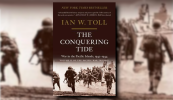Search
Using the filters to the left, click your selection, it will become bold and filter the results, click it again to remove that filter.
Macmillan Australia , 2021, 336 pp RRP: $36.99 Paperback ISBN 9781760983499 Written By : Dan Pronk, Ben Pronk and Tim Curtis Reviewed By : Darren Cronshaw The Resilience Shield is a book written by three former Australian special forces soldiers that urges readers to build resilience by focusing on six interrelated layers. [1] The book’s underpinning proposition is that the best time to develop a so-called ‘resilience shield’ is before crises so that compounding stressors do not get the better of us. I …
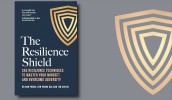
30 Years – An Infantry Soldier’s Story: Somalia, East Timor, Afghanistan, Iraq Newport, NSW: Big Sky Publishing . 2025. 312 pp. RRP AUD 34.99 Paperback ISBN: 9781923300187 Written By : Adrian Hodges Reviewed By : Aaron P. Jackson According to its title, this book offers an autobiographical account of the author’s 30-year career as an infantry soldier in the Australian Army, including four deployments. Frankly, this title sells it short. The book is much more than just the story of a 30-year career and …
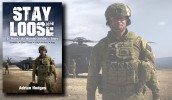
History, Politics and International Relations London, Routledge, 2023, pp 234 ISBN: 9781032117171 Editors : Bridget Brooklyn, Benjamin T. Jones, and Rebecca Strating Reviewed By : Pearl Nunn Comprehensive yet accessible, challenging and probing; Australia on the World Stage is the ideal introduction to Australian foreign relations from before colonisation to the twenty-first century. The three co-editors include: Bridget Brooklyn, lecturer in Australian history at Western Sydney University and …
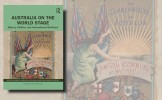
A Very Short Introduction Oxford University Press , 2010 Online ISBN: 9780191777592 Print ISBN: 9780199569915 Author : Keith Grint Reviewed By : Anne Goyne Books on leadership generally fall into three camps: the promotion of a ‘new’ way of theorising about leadership; a deep dive into great, but generally flawed leaders/leadership (which is what makes the narrative interesting); or a compendium of the current leadership literature. Professor Keith Grint’s Leadership: A Very Short Introduction falls into …

Reflecting on recently introduced ADF-wide policy on respite, author Phillip Hoglin identifies areas for further improvement in Occasional Paper 21, Respite Periods in the ADF . He outlines factors that contribute to enduring challenges to the achievement of consistent respite policy, with reference to both Australian and overseas experience. Hoglin identifies a spectrum of applied and academic approaches to address these issues and, based on his analysis, provides several workable options for …

Achieving that Long-Desired Information Advantage Foreword This thoughtful and candid article from Jason Logue addresses challenges and opportunities within the Australian Defence Force (ADF) regarding the evolution of operations in the information environment. While he focuses on his experiences within the ADF, his characterisation, observations and views are consistent with US challenges based upon my almost 30 years of experience as US Department of Defense Information professional. Essentially, Grey …
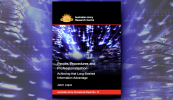
The Australian government’s intent to increase the defence workforce to 100,000 personnel by 2040 affects the Army’s future force structure, capability, and training. [1] Yet, before the implications of this target can be properly considered, the issue of recruitment must be addressed. The changing threat within the Indo-Pacific, and the lack of 10-year warning time, means that recruitment for the future is more important than ever. From the impacts of COVID-19 to ongoing natural disasters, there has been …
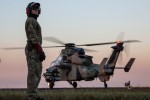
The ADF has a long history of defence international engagement within our region and beyond. In Occasional Paper 18 , Dr Michael O'Keefe seeks to extend the policy literature through a case study of international engagement with Fiji by detailing how a successful approach from 2014-2017 contributed to the achievement of Australian foreign policy goals. … Occasional Paper release - ADF Engagement with …
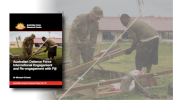
What can the benefits of Train, Advise and Assist missions be for members of Army and the ADF? Train, Advise and Assist (TAA) missions have been a major component of Australian Defence Force (ADF) and Army operations since the end of the Second World War. Defence undertakes these missions, as directed by government and its ministers, to aid, train and develop the forces of Australia’s partner nations. Although these partner forces are the focus of training, it is wrong to characterise these TAA missions as …
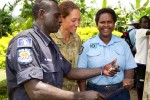
War in the Pacific Islands, 1942-1944 By Ian, W. Toll WW Norton and Company, 2015. 688. Paperback ISBN: 9780393353204 Hardcover ISBN: 9780393080643 Reviewed by Sam Baumgarten The Conquering Tide is an outstanding book for those wishing to understand the American conduct of war in the Pacific. It examines the war in the Pacific islands from the aftermath of the Battle of Midway to the Battles of Saipan and Guam in mid-1944. This is the second part of a trilogy. The other two books cover firstly the war in …
